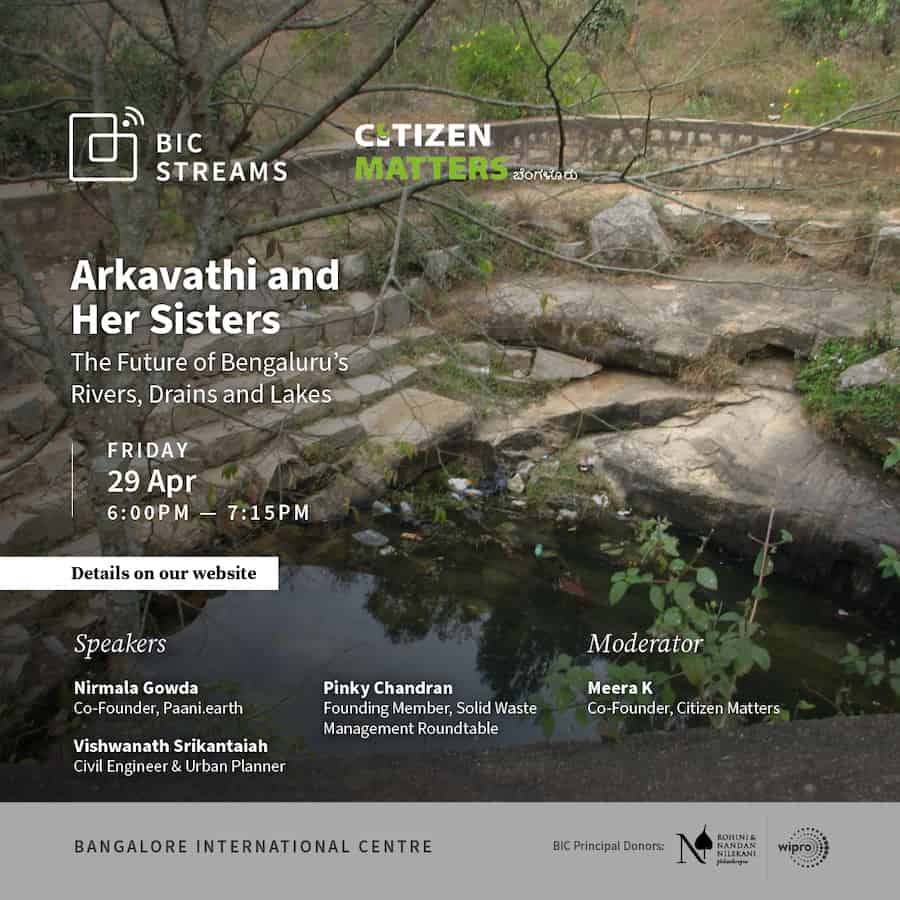Rivers, the lifeline of our economy, are drying up and/or becoming too polluted. Drought and floods are becoming frequent and more intense. Addressing these challenges involves making sound data-driven and evidence based decisions in the context of the river basin. In a mature democracy, data and evidence should be in the public domain, so citizens, including policy makers, can form informed opinions and take informed actions.
Once, it was the Arkavathi river that sustained Bengaluru. Running dry and polluted for almost half a century now, Arkavathi river is today biologically dead, a ghost river. It stands as living proof of what is in store for our other rivers and lakes.
Read more: Vrishabhavathi, Arkavathi, Cauvery, my mother
Citizen Matters is organising an online panel discussion: “The future of Bengaluru’s rivers, drains and lakes” in collaboration with BIC:
- The current state of the rivers, kaluves and lakes of Bengaluru and their interlinkages.
- Initiatives, non-starters and plans in the air.
- The role of civic groups in the way forward.

Event details:
Event title: The future of Bengaluru’s rivers, drains and lakes
Date: April 29, 2022
Time: 6 pm (The webinar will be followed by a brief Q&A session open to participants.)
Register here: https://bit.ly/RiversofBengaluru
Read more : Why are Bengaluru lakes green in colour?
Speakers:
- Nirmala Gowda – Co-founder, Paani.earth
- S. Vishwanath, Civil Engineer & Urban Planner
- Pinky Chandran – Founding Member, Solid Waste Management Roundtable
- Meera K – Co-founder – Citizen matters (Moderator)